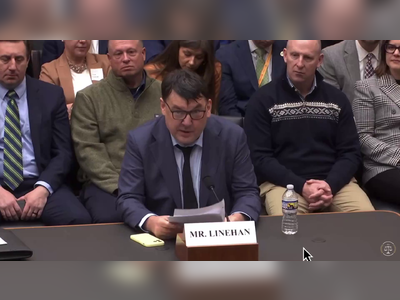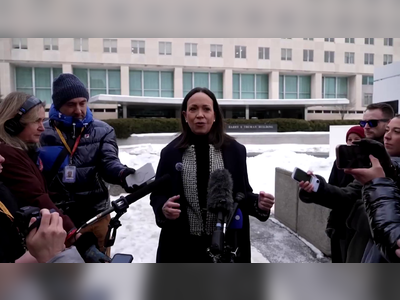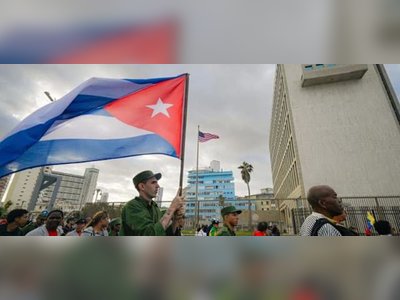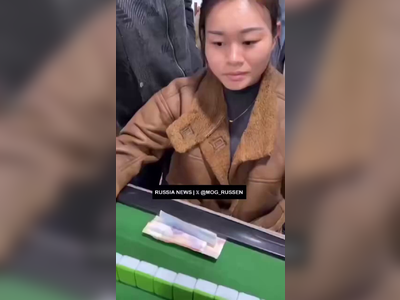Melania Villalta Sets a New Standard for Online Engagement: Zero Tolerance for Inappropriate Comments
The model and television presenter takes a stand against inappropriate behavior on social media, highlighting broader issues of respect in digital interactions.
In a recent episode of social media dynamics that has garnered significant attention, Melania Villalta, a renowned model and television presenter from Costa Rica, has made headlines by candidly addressing inappropriate comments she received on her Instagram account.
The incident underscores the ongoing challenges public figures face in managing their online presence and maintaining respectful interactions in the digital domain.
Villalta, who gained widespread recognition through her participation in the popular television program 'El Chinamo' aired by Channel 7, used her Instagram platform to interact with followers.
However, amidst the interactions, an inappropriate remark from a user prompted her to take decisive action.
Characterized as a 'piropo pasado de tono' or an over-the-line compliment, the comment was swiftly addressed by Villalta, who did not shy away from setting clear boundaries.
The comment in question read 'Rica mi amor,' a statement Villalta deemed unacceptable.
In response, she took to her social media to articulate her stance against disrespect and revealed her approach to managing such instances.
'I am one of those people who blocks others on social media when I see this type of comment,' Villalta, aged 22, asserted in her response.
She further elaborated on her zero-tolerance policy, emphasizing that individuals who post inappropriate messages will be permanently restricted from accessing her social media content.
'Whoever writes such a comment to me, that's literally the last thing they see on my Instagram.
I am not interested in having such individuals in my community or on my social networks,' she added, resolutely.
Villalta's reaction reflects a broader societal conversation about online etiquette and the boundaries of acceptable behavior.
Her rising profile, bolstered by her stint on 'El Chinamo,' has amplified her visibility, inevitably drawing both positive attention and unwarranted remarks from admirers and detractors alike.
This incident consequently highlights the potential effects of increased public attention on personal and professional boundaries.
Online harassment and inappropriate comments continue to be pervasive issues on digital platforms globally.
As public figures, particularly women, navigate these challenging arenas, Villalta's stance contributes to an ongoing dialogue about respect and privacy in digital environments.
Her decision to block users crossing these lines showcases a proactive approach to cultivating a respectful digital community.
As more individuals engage with social media platforms worldwide, the implications of this incident underscore the importance of fostering environments where respect and appropriate interaction are the norms rather than the exceptions.
Villalta's actions may serve as an example to both her peers and followers, illustrating a commitment to positive and respectful online exchanges.
The incident underscores the ongoing challenges public figures face in managing their online presence and maintaining respectful interactions in the digital domain.
Villalta, who gained widespread recognition through her participation in the popular television program 'El Chinamo' aired by Channel 7, used her Instagram platform to interact with followers.
However, amidst the interactions, an inappropriate remark from a user prompted her to take decisive action.
Characterized as a 'piropo pasado de tono' or an over-the-line compliment, the comment was swiftly addressed by Villalta, who did not shy away from setting clear boundaries.
The comment in question read 'Rica mi amor,' a statement Villalta deemed unacceptable.
In response, she took to her social media to articulate her stance against disrespect and revealed her approach to managing such instances.
'I am one of those people who blocks others on social media when I see this type of comment,' Villalta, aged 22, asserted in her response.
She further elaborated on her zero-tolerance policy, emphasizing that individuals who post inappropriate messages will be permanently restricted from accessing her social media content.
'Whoever writes such a comment to me, that's literally the last thing they see on my Instagram.
I am not interested in having such individuals in my community or on my social networks,' she added, resolutely.
Villalta's reaction reflects a broader societal conversation about online etiquette and the boundaries of acceptable behavior.
Her rising profile, bolstered by her stint on 'El Chinamo,' has amplified her visibility, inevitably drawing both positive attention and unwarranted remarks from admirers and detractors alike.
This incident consequently highlights the potential effects of increased public attention on personal and professional boundaries.
Online harassment and inappropriate comments continue to be pervasive issues on digital platforms globally.
As public figures, particularly women, navigate these challenging arenas, Villalta's stance contributes to an ongoing dialogue about respect and privacy in digital environments.
Her decision to block users crossing these lines showcases a proactive approach to cultivating a respectful digital community.
As more individuals engage with social media platforms worldwide, the implications of this incident underscore the importance of fostering environments where respect and appropriate interaction are the norms rather than the exceptions.
Villalta's actions may serve as an example to both her peers and followers, illustrating a commitment to positive and respectful online exchanges.











